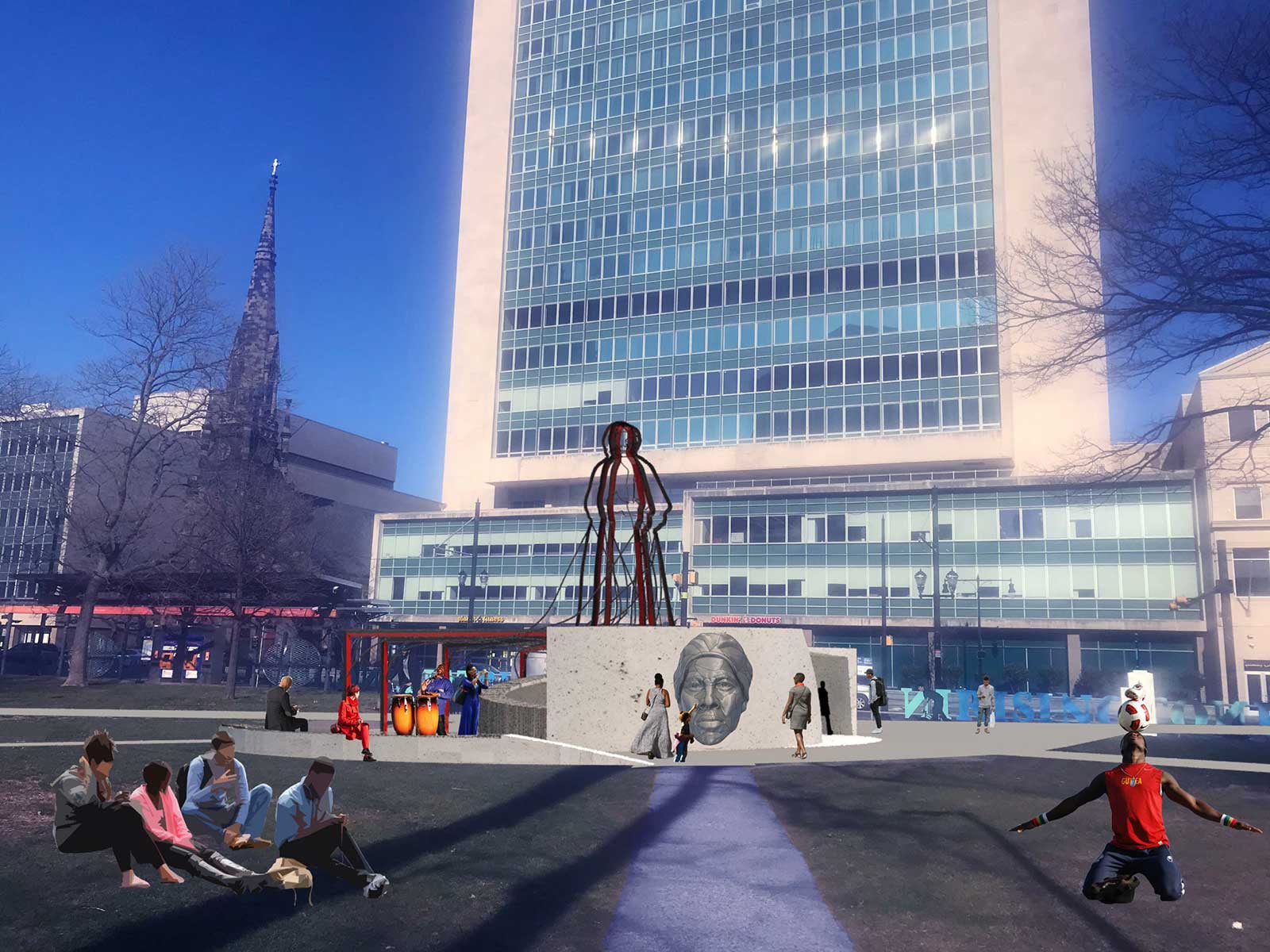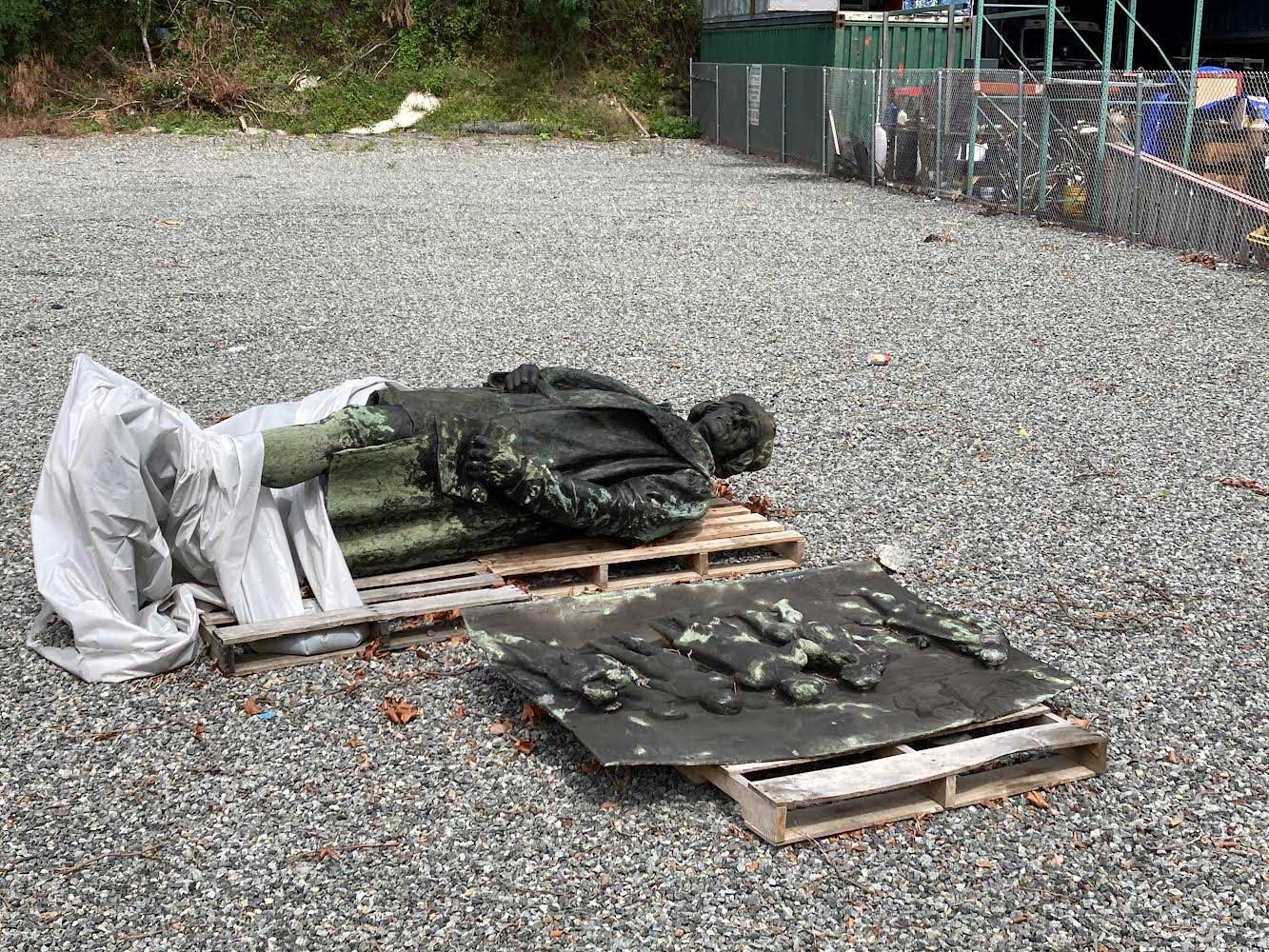
The new Tubman Monument was designed by Nina Cooke John. Image courtesy of the City of Newark.
A New Jersey commissioner overruled a state panel of preservationists, paving the way for a Harriet Tubman monument in Newark’s oldest historic district.
In the face of growing civil unrest, and backed by Mayor Ras Baraka’s mission to rid the city of symbols of slaveholders, instead replacing them with monuments that “include us,” as Baraka said in an March public meeting, a statue of Christopher Columbus was removed from the James Street Historic District in 2020. The statue will be replaced by an effigy of the black abolitionist designed by artist Nina Cooke John, which required approval by the state historic preservation office (SHPO).

The decision sets an interesting precedent and preservationists are curious how the decision will affect their ability to enforce historic preservation ordinances in the future. Newark Landmarks, the city’s oldest preservation group and the ones responsible for landmarking Washington Park — renamed Tubman Square — denounced the ruling, pointing to the “mayor’s obsession with Washington as a slaveholder.” The reversal of the state panel — which voted for a temporary denial and issued a number of conditions — has fueled the Newark Landmarks’ suspicion that politics somehow infected the decision.
“I’ve often said that landmark rules and regulations work as long as there’s no politics involved,” Liz Del Tufo, president of Newark Landmarks, told Jersey Digs.
The officers at the SHPO meeting in June required city officials to consult with stakeholders, including the Italian-American community, and to present an alternative plan where the statues of both Tubman and Columbus could coexist. The requirement for an alternative plan was scrapped by Elizabeth Dragon, the state’s Assistant Commissioner of Community Investment and Economic Revitalization.
“Restoring the Columbus statue to its original location would undermine the City’s stated goals to foster a more inclusive Park setting and was therefore dismissed by the City,” Dragon wrote in her decision.
Those who support the changes to the park believe they are correcting the wrongs of history and making public spaces more inclusive. Their beliefs — that Columbus’s crimes of genocide are so heinous that his likeness is unbefitting in a majority black city — are uncompromising. Baraka has publicly acknowledged the direct relationship between power and history and sees his time in office as an opportunity to rewrite racist narratives.
“For years we have allowed other people to define us, to be self-appointed narrators of our lives. Like the writers of the old westerns who always concluded the story with the Indigenous people losing,” Baraka was quoted in TapInto Newark. “I am happy today that we are telling our own story, we are writing our own history, and in this version we win.”
But the city’s emphasis on inclusivity is seen as contradictory to Italian-Americans who point to their lack of inclusion throughout the process. The top-down ruling by a commissioner once again reinforces that the community most impacted by the proposal was the one least engaged. Critics also argue that stripping both the park and the city’s calendar of Italian-American representation — Columbus Day was replaced by Indigenous People’s Day — is evidence that the proposal was born of the mayor’s vendetta against Italian-Americans.
Nevertheless, the removal of Columbus’s statue has been a cause of celebration for black Newarkers and the dawn of a new world that the 15th-century explorer could never have conceived.
“It was an honor and privilege to stand guard with a small group of Newarkers to take down the Columbus Statue on Washington Park,” wrote Salamishah Tillet, Pulitzer-prize-winning cultural critic. “We danced, we cried, we laughed, we smudged, and we offered up our love to our ancestors, and made a new future.”


